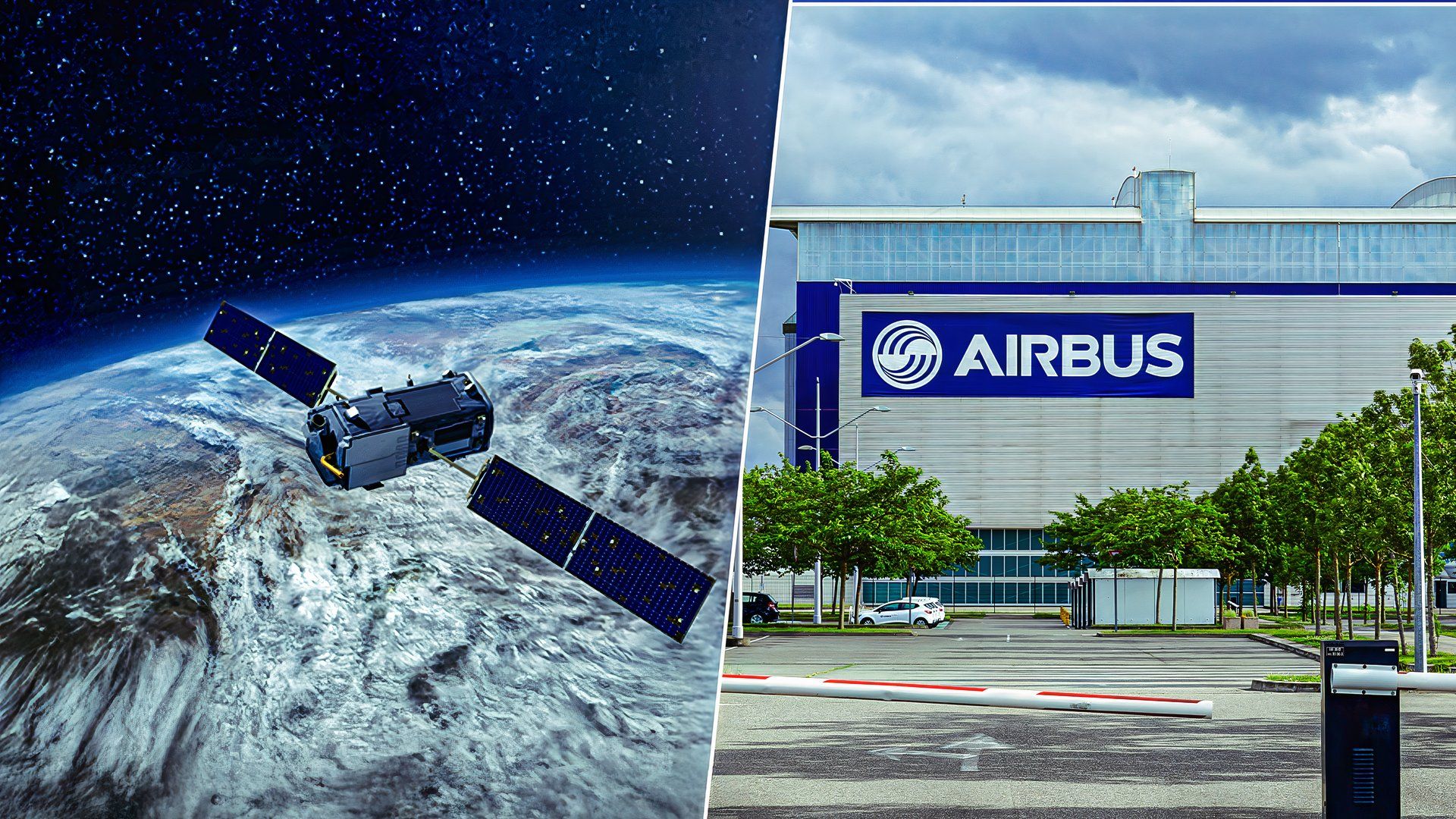World
Airbus Revolutionizes Weather Forecasting with Next-Gen Satellites

Airbus is transforming weather forecasting through its collaboration with the European Space Agency (ESA), launching innovative satellites that enhance the accuracy and speed of weather predictions. The recent introduction of the Meteosat Third Generation (MTG) Imager satellite marks a significant milestone in this initiative, promising to improve forecasting capabilities across Europe and beyond. This advancement is crucial, as weather impacts over one-third of Europe’s economy, particularly sectors such as agriculture, energy, and transportation.
The evolution of weather forecasting has come a long way from its humble beginnings with barometers and atmospheric balloons. In the 19th century, predictions were largely based on limited local observations. The introduction of telegraph systems allowed for the broader transmission of weather data, but uncertainties remained. Today, satellites like those developed by Airbus provide comprehensive views of global weather patterns.
The MTG satellite, which began operations in 2025, represents a leap forward in meteorological technology. With the ability to deliver updates every 2.5 minutes, compared to the 15-minute refresh rate of previous generations, MTG significantly enhances the accuracy of severe weather alerts. This rapid data transmission allows countries to prepare more effectively for extreme weather events such as floods and hurricanes.
Airbus has combined advanced imaging technology with lightning detection instruments in the MTG series, enabling scientists to track electrical discharges across Europe and Africa. This capability allows meteorologists to identify storm systems hours before they become visible on traditional radar, thereby improving safety for aviation operations. With timely warnings, pilots can adjust flight paths to avoid turbulence, ultimately enhancing passenger safety and fuel efficiency.
The integration of these satellites into Europe’s weather infrastructure is facilitated through partnerships with organizations such as EUMETSAT, the European Organisation for the Exploitation of Meteorological Satellites. This collaboration ensures the effective processing and distribution of data, allowing various sectors to benefit from enhanced weather predictions. Improved lightning detection and real-time cloud monitoring translate into fewer surprises during flights, reducing unnecessary diversions that can lead to high costs and passenger inconvenience.
The impact of Airbus’s advancements extends beyond aviation. Accurate weather forecasts play a crucial role in everyday decision-making for individuals and businesses. For example, farmers can optimize their harvest schedules based on precise forecasts, while energy providers can better anticipate demand fluctuations. The integration of satellite data into smartphone weather applications ensures that millions of users have access to reliable and timely information.
The importance of weather forecasting extends into space as well, where phenomena like solar storms can disrupt communications and navigation systems. Airbus is addressing this issue by developing monitoring tools for space weather, which adds another layer of resilience to aviation operations. By predicting solar activity, airlines can take preventive measures during routes that may be affected by solar storms.
As climate change continues to influence weather patterns globally, the role of accurate forecasting becomes increasingly vital. Airbus’s contributions help mitigate the effects of severe weather events, which are becoming more frequent across previously stable regions. The MTG satellites facilitate better foresight, leading to fewer delays, reduced fuel consumption, and enhanced safety for passengers.
The implications of Airbus’s innovations in weather forecasting are far-reaching. Beyond improving airline operations, these technologies support climate modeling, disaster preparedness, and agricultural efficiency. The data generated by Airbus satellites informs critical decisions across various sectors, influencing everything from insurance policies to infrastructure planning.
In summary, Airbus is at the forefront of a new era in weather forecasting, leveraging cutting-edge technology to empower sectors that depend on accurate meteorological data. With the MTG satellites leading the charge, the future of weather predictions is set to be sharper, faster, and more relevant, benefiting individuals and industries alike. As extreme weather events become more common, the accuracy of these forecasts will play a crucial role in shaping humanity’s response to a changing climate.
-

 Entertainment1 month ago
Entertainment1 month agoAnn Ming Reflects on ITV’s ‘I Fought the Law’ Drama
-

 Entertainment2 months ago
Entertainment2 months agoKate Garraway Sells £2 Million Home Amid Financial Struggles
-

 Health1 month ago
Health1 month agoKatie Price Faces New Health Concerns After Cancer Symptoms Resurface
-

 Entertainment2 months ago
Entertainment2 months agoKim Cattrall Posts Cryptic Message After HBO’s Sequel Cancellation
-

 Entertainment1 month ago
Entertainment1 month agoWhere is Tinder Swindler Simon Leviev? Latest Updates Revealed
-

 Entertainment2 months ago
Entertainment2 months agoMasterChef Faces Turmoil as Tom Kerridge Withdraws from Hosting Role
-

 Entertainment3 months ago
Entertainment3 months agoSpeculation Surrounds Home and Away as Cast Departures Mount
-

 World1 month ago
World1 month agoCole Palmer’s Mysterious Message to Kobbie Mainoo Sparks Speculation
-

 Entertainment1 month ago
Entertainment1 month agoITV’s I Fought the Law: Unraveling the True Story Behind the Drama
-

 Entertainment3 weeks ago
Entertainment3 weeks agoCaz Crowned Winner of The Great British Sewing Bee, Overjoyed by Triumph
-

 Entertainment2 months ago
Entertainment2 months agoAldi Launches Cozy Autumn Fragrance Range Ahead of Halloween
-

 Entertainment2 months ago
Entertainment2 months agoMarkiplier Addresses AI Controversy During Livestream Response





















